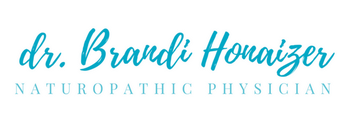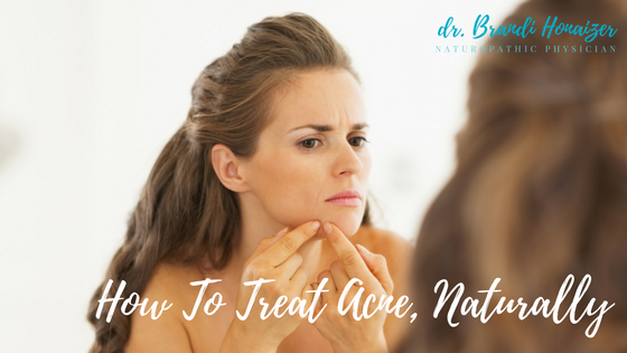|
Acne is far more than what is happening on the skin. It is a reflection of what is happening within your body. This is why conventional treatment options will rarely work to manage acne long-term. They do not address the underlying cause of the acne and rather suppress it. Proper cleansing and exfoliation is an important part of acne care because it keeps skin clean and pores free of debris. A natural treatment protocol will also include the following aspects to address the root causes and prevent recurrence. Remove Trigger Foods
Optimize Your Digestion There is an intimate connection between the gut and skin health. Most skin irritations (acne, eczema, psoriasis, rashes) indicate some type of imbalance in the gut. The standard American diet can be very inflammatory and lead to poor digestion and absorption of food as well as an imbalance in gut flora. Treatment is highly individualized but may include elimination of food sensitivities, probiotics and gut healing supplements. Ensuring regular bowel movements is also key to ensure good elimination of excess hormones and toxins. Balance Your Hormones If symptoms do not improve with dietary changes, gut healing and liver support your hormones may to blame. Women will often experience a flare in the week before their period. Acne can result when there is an imbalance between estrogen and progesterone. It can also present in conditions such as PCOS where there is an excess of androgens and insulin resistance present. Complete hormone testing can be done via blood, saliva or urine. Once the imbalance is identified, supplements and herbs can be prescribed to address your individual results. Decrease Overall Inflammation Chronic low grade inflammation can present with multiple different symptoms. In regards to acne, this may be lots of red, cystic lesions on the face or other areas of the body. A clean whole foods diet, fish oil supplements, and general lifestyle habits such as stress management, good sleep and exercise can go a long way. Correct Nutrient Deficiencies Various nutrients have been found to be low in patients suffering with acne, including chromium, selenium, Vitamins A and E and zinc. The nutrients Vitamin A, C, and zinc are essential for skin healing, collagen production and tissue repair.
1 Comment
|
Categories
All
LIKE ME ON FACEBOOK
|
|
connect
|


 RSS Feed
RSS Feed